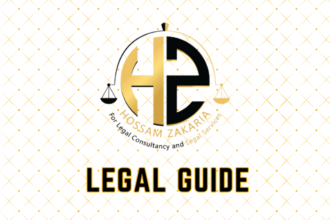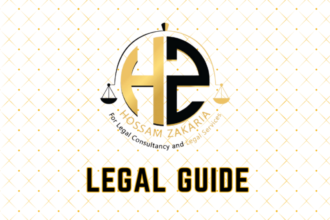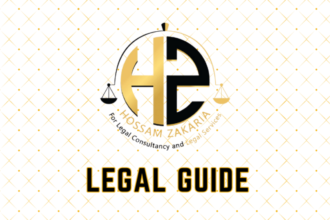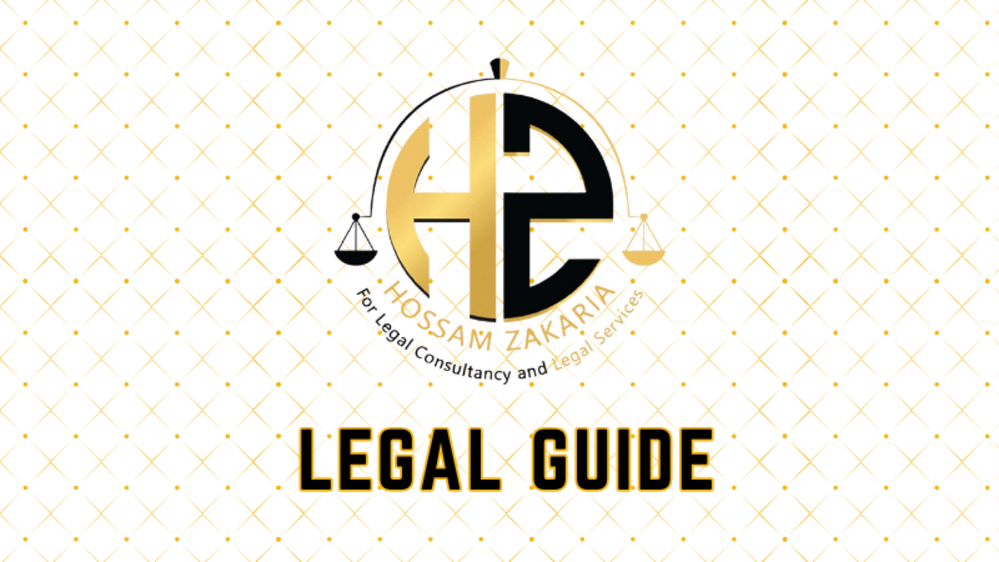Introduction: The Importance of Minimum Capital in Banking for Financial Stability
Financial stability remains the backbone for sustainable economic growth, not only in the Gulf Cooperation Council (GCC) region but also globally. Within this context, Saudi Arabia has reinforced its commitment to banking sector resilience through regulatory advancements—most notably, stringent minimum capital requirements for banks. For professionals and stakeholders in the UAE, particularly amid evolving compliance landscapes post-2025, understanding how neighbouring jurisdictions like Saudi Arabia implement these measures is paramount for benchmarking, risk management, and regional cooperation.
This legal analysis unpacks how minimum capital regulations underpin Saudi bank stability, examines the practical implications for businesses with cross-border interests in the GCC, and draws parallels with UAE compliance frameworks. Whether you are a UAE-based executive managing regional assets, a legal practitioner advising on international banking standards, or a compliance officer navigating new regulatory decrees, this article offers deep insights and actionable guidance.
Table of Contents
- Overview of Minimum Capital Regulations in Saudi Banks
- Legal and Regulatory Framework
- Breakdown of Provisions: Capital Requirements and Implementation
- Impact Analysis: Enhancing Bank Resilience
- Comparative Analysis: Saudi and UAE Banking Laws
- Practical Applications and Case Studies
- Risks of Non-Compliance and Penalty Structures
- Compliance Strategies for GCC Banks
- Conclusion and Future Outlook
Overview of Minimum Capital Regulations in Saudi Banks
At the core of Saudi Arabia’s banking regulatory architecture is a robust capital adequacy framework. Minimum capital requirements not only serve to absorb losses and protect depositors but also form a critical buffer against systemic shocks, as reinforced by global standards such as the Saudi Central Bank (SAMA) guidelines and the Basel Accords. Saudi Arabia’s recent regulatory updates, closely aligned with G20 commitments, reflect an increased emphasis on prudential supervision and capital adequacy to bolster financial sector stability.
Why Minimum Capital Matters
Minimum capital requirements are fundamentally intended to:
- Mitigate insolvency risks in periods of economic distress.
- Enhance the integrity and trust in the national financial system.
- Promote market discipline and prudent risk-taking among banks.
With cross-border banking operations on the rise in the GCC, these regulations bear direct strategic relevance for UAE-based entities investing or partnering in Saudi markets.
Legal and Regulatory Framework
Saudi Arabia establishes its minimum capital mandates through a combination of statutes, regulatory instructions, and supervisory circulars. The principal sources include:
- Banking Control Law (Royal Decree No. M/5 of 1386 H): The foundational statute empowering SAMA to license, regulate, and supervise banks in Saudi Arabia.
- SAMA Capital Adequacy Framework: Periodically updated guidelines articulating minimum paid-up capital thresholds, in line with Basel III standards.
- Implementing Regulations and Circulars: These detail operational aspects, reporting obligations, and regulatory capital definitions for Saudi banks.
Noteworthy Regulatory Updates
Recent policy shifts have seen SAMA impose increased minimum capital for new market entrants, strategic capital buffers for systemic banks, and enhanced disclosure obligations. These reforms aim for regulatory harmonisation with international standards while recognising the unique risk profile of the Saudi banking market.
Breakdown of Provisions: Capital Requirements and Implementation
Current Minimum Capital Statutory Requirements
As of the latest policy circulars:
- Conventional banks must maintain a minimum paid-up capital of SAR 10 billion (approx. AED 9.8 billion).
- Foreign bank branches are subject to a minimum assigned capital (commonly SAR 15 billion upon licensing).
- Systemically Important Financial Institutions (SIFIs) may face higher capital requirements or additional capital surcharges.
Implementation Roadmap
Step 1: Licensing and Capital Verification
Banks must present proof of paid-up capital at the time of licensing and subject themselves to ongoing capital adequacy reviews.
Step 2: Ongoing Supervision
Quarterly and annual submissions are mandated, demonstrating compliance with both minimum capital and capital adequacy ratio (CAR) standards, typically set at 12%—well above the Basel minimum (8%).
Legal Provisions Table: A Comparative Overview
| Provision | Pre-2020 Law | Post-2020/SAMA Guidelines |
|---|---|---|
| Minimum Paid-Up Capital | SAR 5 Billion | SAR 10 Billion |
| Capital Adequacy Ratio | 8% (Basel II) | 12% (Basel III+) |
| Disclosure & Reporting | Semi-Annual | Quarterly + Enhanced Disclosure |
| Foreign Branch Treatment | Case-by-Case | SAR 15 Billion Standard Benchmark |
Visual Aid Suggestion
Suggested Visual: “Saudi Bank Minimum Capital Process Flow Diagram”—illustrating the licensing, reporting, and enforcement procedures, ideal for compliance officers and legal consultants.
Impact Analysis: Enhancing Bank Resilience
Financial Sector Stability and Systemic Risk
By enforcing higher minimum capital requirements, Saudi authorities aim to:
- Protect client deposits and reinforce public trust.
- Ensure banks can absorb unexpected losses (particularly during economic shocks, as demonstrated during the COVID-19 pandemic and oil price volatility).
- Avoid potential government bailouts and resultant fiscal strain.
Strategic Relevance for UAE Stakeholders
UAE-based businesses frequently engage with Saudi banks for trade, investment, or syndicated financing. Enhanced capital rules increase confidence in the cross-border financial ecosystem, thus encouraging regional business expansion and investment.
Case Study: Hypothetical Scenario
Scenario: A UAE-based conglomerate seeks project financing from a Saudi bank.
- With enforceable SAR 10 billion minimum capital and a 12% CAR, the bank demonstrates robustness, reducing the counterparty risk for the UAE borrower.
- Transparent reporting ensures greater operational due diligence and mitigates risk of funding interruptions.
Comparative Analysis: Saudi and UAE Banking Laws
For regional executives and legal teams, an informed comparison of Saudi and UAE minimum capital statutes is crucial. The UAE Central Bank implements its own set of prudential regulations, frequently updated in response to global and regional banking developments.
Comparison Table: Minimum Capital in Saudi vs. UAE
| Jurisdiction | Minimum Paid-Up Capital | Capital Adequacy Ratio | Regulatory Body |
|---|---|---|---|
| Saudi Arabia | SAR 10 Billion | 12% | SAMA |
| UAE | AED 2 Billion (national banks); AED 40 Million (foreign branches) | 13% Common Equity Tier 1; 16% Total CAR (2022 update) | UAE Central Bank |
UAE Law 2025 Updates: Key Highlights for Legal Compliance
- New Federal Decree on Banks’ Capital (Federal Decree Law No. 14 of 2018, as amended in 2025): Introduces stricter capital requirements and enhanced stress testing obligations for all UAE-licensed financial institutions.
- Implementation deadlines: Existing banks to comply by Q1 2026, with transitional relief under Cabinet Resolution No. 3/2025.
- Penalties: Non-compliance may result in sanctions under Article 15 of the Banking Law, including fines, operational restrictions, and—in severe cases—license suspension.
Practical Implications for Cross-Border Operations
For banks active in both Saudi and the UAE, harmonising compliance protocols is crucial. Parallel developments often trigger internal risk reassessments, recalibration of capital buffers, and refinement of internal audit processes.
Practical Applications and Case Studies
Case Study 1: UAE Bank Establishing a Saudi Subsidiary
Situation: A leading UAE bank seeks to establish a Saudi subsidiary.
- Must demonstrate SAR 10 billion minimum paid-up capital in addition to regulatory approvals from both SAMA and the UAE Central Bank.
- Implementation involves legal structuring, capital verification through authorized auditors, and coordinated regulatory reporting.
Case Study 2: M&A in the Banking Sector
Situation: Two regional banks contemplate a cross-jurisdictional merger.
- The merged entity must meet the higher of the two minimum capital thresholds (SAR 10 billion or AED 2 billion), whichever is applicable to the resultant legal entity. Coordination with both SAMA and the UAE Central Bank is mandatory for approval.
Compliance Checklist: Establishing a Bank in Saudi Arabia
| Task | Mandatory Action | Reference |
|---|---|---|
| Capital Verification | Yes | SAMA Circular, Royal Decree M/5 |
| Board Approval | Yes | Articles of Association |
| Regulatory Approvals | Yes | SAMA Licensing Authority |
| Quarterly Reporting | Yes | SAMA Supervisory Circular |
| Annual Auditing | Yes | External Audit, SAMA |
| Stress Testing | Yes (2025-onward) | SAMA, Basel III+ |
Risks of Non-Compliance and Penalty Structures
Legal and Commercial Risks
- Licensing Risk: Failure to achieve minimum capital or refresh adequacy ratios could result in license non-renewal or suspension.
- Reputational Damage: Regulatory breaches are routinely publicised by SAMA and the UAE Central Bank, harming investor and customer confidence.
- Operational and Financial Penalties: Fines, limits on dividend distribution, and restrictions on business expansion may be enforced.
Penalty Comparison Chart
| Jurisdiction | Penalty for Non-Compliance | Authority |
|---|---|---|
| Saudi Arabia | License suspension, SAR 10+ million fines, public censure | SAMA |
| UAE | Fines (up to AED 10 million), operational restrictions, compulsory management changes | UAE Central Bank |
Compliance Strategies for GCC Banks
Proactive Strategies for Sustained Compliance
- Regular Capital Monitoring: Implement automated tools for real-time capital ratio tracking to avoid breaches.
- Board and Management Training: Continuous education on SAMA and UAE Central Bank requirements is essential for Directors and key staff.
- External Professional Audits: Annual third-party auditing provides independent assurance to regulators.
- Integrated Compliance Programs: Banks with cross-border operations should unify compliance frameworks across the GCC to reduce operational friction and risk.
- Stress Testing and Scenario Analysis: Adoption of rigorous, regulator-aligned stress testing aids in identifying vulnerabilities and preparing remedial strategies, a trend accentuated in the 2025 updates.
Visual Aid Suggestion
Suggested Visual: “Minimum Capital Compliance Checklist”—An interactive compliance tool or downloadable PDF checklist for legal and compliance teams operating in both Saudi Arabia and the UAE.
Conclusion and Future Outlook
Minimum capital requirements remain a central pillar of banking sector stability in Saudi Arabia, closely mirroring and complementing regulatory trends in the UAE. As both jurisdictions enhance their capital adequacy frameworks post-2025, proactive legal and compliance strategies are vital for cross-border banks and businesses.
Key takeaways for UAE-based executives, legal advisers, and HR professionals include:
- Anticipate ongoing capital requirement enhancements in both Saudi Arabia and the UAE as part of broader regulatory alignment and financial sector fortification.
- Integrate capital compliance checks into core risk management protocols—particularly in trans-GCC transactions and multi-jurisdictional banking operations.
- Stay alert to official communications from SAMA and the UAE Central Bank, particularly updates via the UAE Ministry of Justice and respective legal gazettes.
- Invest in training, technology, and professional consultancy to ensure enduring compliance, business agility, and stakeholder confidence.
As the GCC financial landscape becomes more interconnected, robust capital regulation will continue to ensure systemic resilience—creating new opportunities for informed, compliant institutional growth across regional markets.



